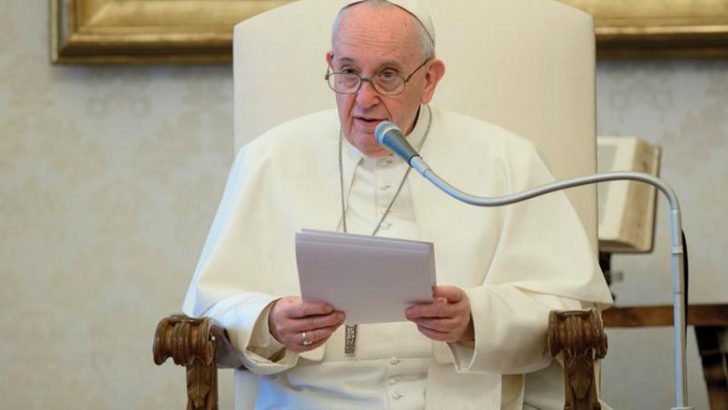I have just had the privilege and delight of being bean an tí for an online discussion panel about how as families and parishes we can care for creation. On the panel were Bishop Alan McGuckian of Raphoe Diocese, Nóirín Lynch Director of the Margaret Aylward Centre for Faith and Dialogue in Glasnevin and Jane Mellett who is the Laudato Si’ Officer with Trócaire. I organised this event as part of the Season of Creation but also with a view to the recording of the webinar being made available as a conversation starter for groups and parishes.
It was abundantly clear from all three speakers that Laudato Si’, Pope Francis’ encyclical on ‘Care for our Common Home’ offers us a real opportunity to address some of the challenges we now face. One of the challenges that people in Church circles are talking about is the reluctance of some to return to Mass. A recently published piece in this paper mentioned figures of 19% of previous Mass goers who were unsure if they would return plus 4% who said they would not. Clearly we do not want our parish communities to decline and there is a massive job of work to be done there to invite people to re-engage. However there is perhaps something even more vital and that is that we as Church would go out, out to where people are at, out to the margins, out into the market place.
In his Angelus address on 20 September Pope Francis said: “The Church must be like God: always outgoing; and when the Church is not going out, she falls ill with so many evils that we have in the Church.” He acknowledged that this is challenging and involves risk but says, “a damaged Church is better, to go out, to proclaim the Gospel, than a Church sick from closure”. If we can see no further than how many people are at Mass then we risk being a ‘Church sick from closure’. If we are trying to get back to business as usual without taking into account the trauma and stress people have gone through over the past six months we are closing down, shutting out reality and in danger of becoming irrelevant in people’s lives.
In the Gospel Jesus met people where they were at. When they were hungry he fed them. When they were suffering he reached out in tenderness and healed them. When they were searching he provided them with wise teaching. He spoke to them in the language of every day, talking about birds and foxes, about pearls and pigs, about crops growing and failing, about love and relationship. Jesus addressed what mattered in people’s lives.
What are the issues today? People feel vulnerable and stressed but they may also have experienced a whole new sense of connectedness to nature and to people around them. Laudato Si’ offers a powerful reflection on what it is to be human, how much our interconnectedness and interdependence shape us. Could we use that to help people reflect on and share their experience, to take ownership of it and recognise the presence of God right at the heart of life? Many people are aware of how Covid-19 has impacted more harshly on those in Direct Provision, in particular industries and amongst more deprived communities. Again, in Laudato Si’ Pope Francis invites us to face those inequalities, to acknowledge how our economic system promotes such inequality. As Christians isn’t it time we became more vocal about justice and the need for a society transformed by the Gospel? If we cannot do this now in the face of a pandemic then when will we ever? If we refuse to then surely we are the type of closed, sick Church Pope Francis warns of?
I am a mother to four adult children. I know that if I simply tell them they have to go to Mass I might as well go whistle. Only if the Good News I offer them makes the connection between humanity, justice, love, social responsibility, environmental awareness and what happens in the Eucharist will I make any sense to them at all.


 Bairbre Cahill
Bairbre Cahill
